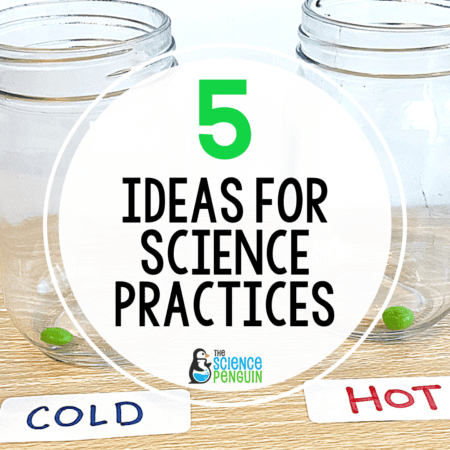
Many upper elementary science teachers start the year teaching their students about science process skills and scientific practices like:
- working safely in the lab
- using science tools
- asking questions
- planning and carrying out investigations
- analyzing and interpreting data
- constructing explanations with claims, evidence, and reasoning
1. Notebook Printable
If your districts uses the scientific method, reference the scientific method all year with this free printable for student notebooks!
Download the PDF now
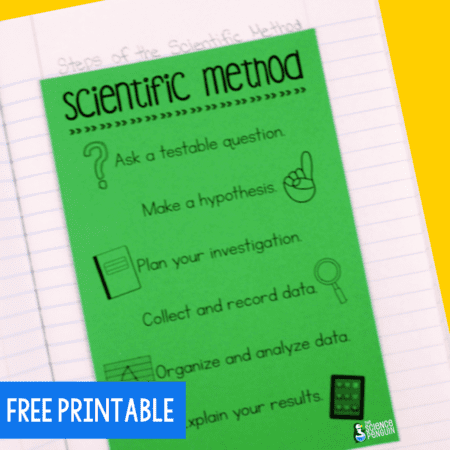
2. Fair Tests Games
In my experience, many elementary students struggle to grasp the idea of controlled variables (constants) and why they are important for fair tests.
What have my students always had an understanding of? Fairness in a game. Play Drag Race, Chocolate Melt, and The Bounce in your classroom to teach your students about fair tests and constants.
See the game directions here
3. Science Investigations Task Cards
Even though we regularly use science processes regularly in class, we still have to practice:
- supporting claims
- forming hypotheses
- identifying variables
- writing procedures
- asking testable questions
Science Investigations Task Cards includes 20 task cards that each have 5 questions about an experiment posed (100 total questions).
See the task cards on TpT
4. iLearn Science
At the beginning of the year, I want a simple, fun experiment to walk my students through science skills and discuss important terms and processes along the way. This is where Skittles come in!
For the great Skittles experiment, we were trying to answer the question: How does the temperature of water affect the time it takes Skittles to dissolve?
The Skittles Experiment is part of iLearn Science, a must-have back to school resource with slides, differentiated student notes, measurement and tools stations, the Skittles investigation, and more!
Many districts are moving to Claim-Evidence-Reasoning (CER) instead of or in addition to the traditional scientific method. This resource includes slides to introduce CER and a CER version of the Skittles investigation.
There are 10 days of lessons in this unit, including:
Lesson 1: What is science? discussion slides, notes, & notebook activity
Lesson 2: How do we practice safety? discussion slides, notes, & notebook activity
Lesson 3: Which tools do we use for observation? discussion slides, notes, and exploration stations
Lesson 4: Which tools do we use for measurement? discussion slides, notes, and exploration stations
Lesson 5: Which measurement system is used in science? discussion slides, notes, and notebook sorting activity
Lesson 6: How is data collected and analyzed? discussion slides, notes, and calculating averages practice
Lesson 7: What are graphs? discussion slides, notes, and reading a graph practice
Lesson 8: How do scientists investigate? discussion slides, notes, and following a procedure practice
Lesson 9: Choose either What is the scientific method? or What is C-E-R? to complete the Skittles investigation
Assessment: 10 question quiz in printable format and Google Forms
5. Keep it up all year
Here is the most important part: Revisit science practices all year long. Most students will need multiple examples and many opportunities to ask questions, develop models, plan investigations, analyze data, construct explanations, and communicate ideas.
SaveSave
Sign up for the Free Resource Library
This is an exclusive library of 40+ science printables, labs, activities, and games for grades 3-6. Sign up and check your email for immediate access.
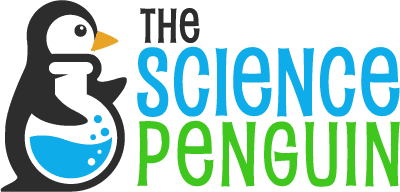
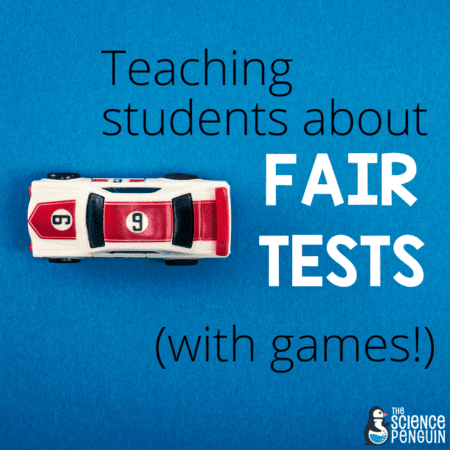
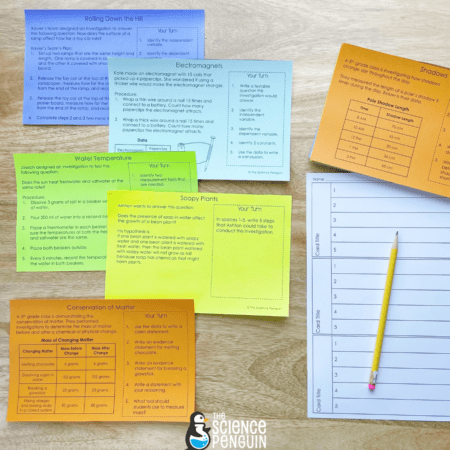
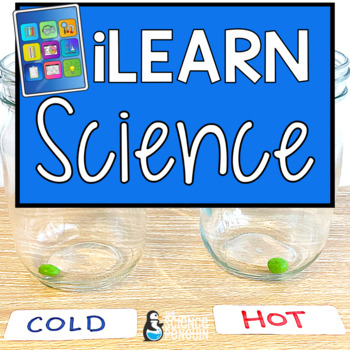

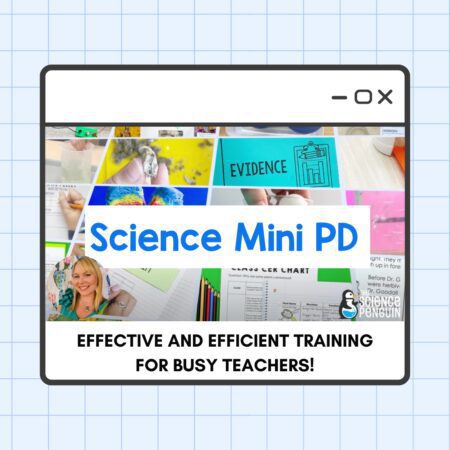
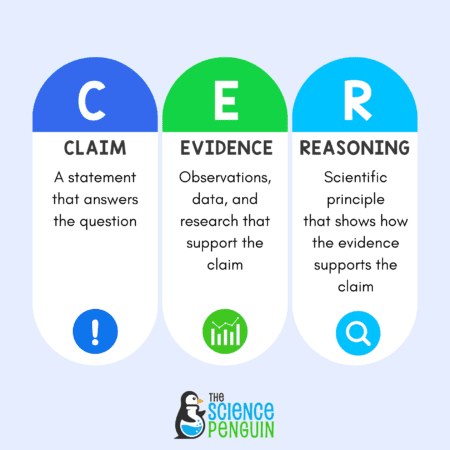

8 thoughts on “5 Ideas for Teaching Science Practices”
Your ideas are fabulous! Thank you!
Many great ideas! I’ve noticed many teachers that use ISNs have short reads loaded with great content. Where do I get these????????
Advise please!
Melissa
This is very helpful to me since I am a teacher of science
U r an amazing person love your ideas
I am a fourth grade Math and Science teacher, and have “always” taught the Scientific Method at the beginning of the year. I am very interested to know if/how you teach it now that we have the NGSS. Any help you can give me is greatly valued!
Hi Jennifer– I think with NGSS it’s even more important to teach students at the beginning of the year the skills that will help them develop fair tests. 🙂
Ari
The fun bouncy ball lesson link is taking me directly to a page about good science books for kids. How do I get to the lesson for testing multiple trials?